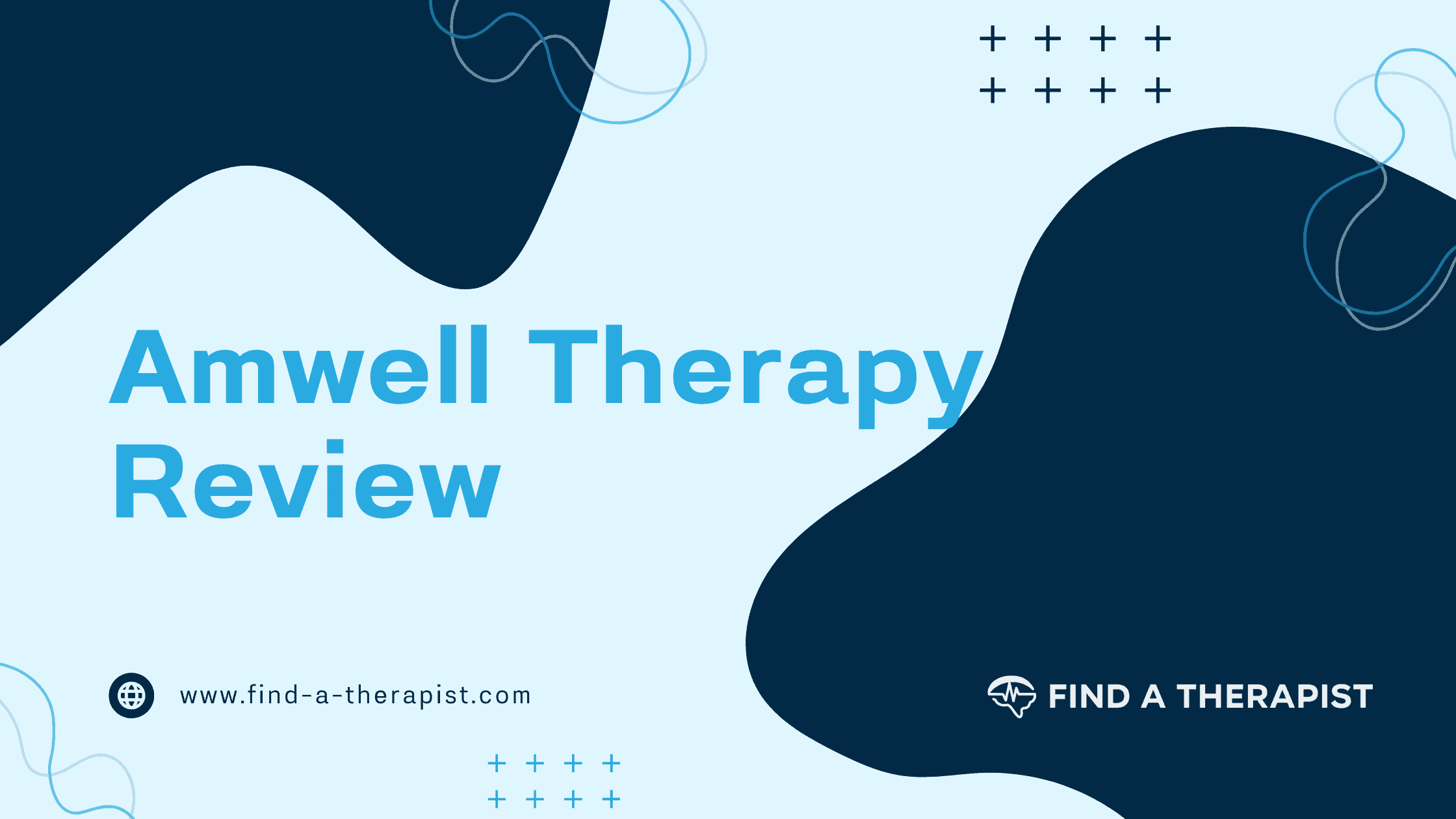In today’s fast-paced world, the convenience and accessibility of online therapy have made it an increasingly popular choice for mental health care.
However, navigating the world of insurance coverage can be a daunting task. Wouldn’t it be great if you could easily find the best online therapy that takes insurance?
In this blog post, we’ll guide you through the complexities of insurance coverage for online therapy, present a list of the top 5 providers that accept insurance and offer valuable tips for choosing the right online therapy provider for your needs.
Short Summary
Understand insurance coverage for online therapy and the factors that influence it.
Choose an online therapy provider with compatible insurance, appropriate therapist specialization, and secure communication methods.
Research legal & ethical considerations such as licensing requirements, confidentiality & privacy protocols, and informed consent before engaging in online therapy services.
Understanding Insurance Coverage for Online Therapy

Navigating the world of health insurance coverage for mental health care can be challenging.
With various types of insurance accepted by different online therapy providers and many factors affecting coverage, it’s essential to clearly understand the landscape before making a decision.
Let’s dive deeper into the types of insurance online therapy providers accept and the factors that can influence coverage.
By understanding these aspects, you’ll be better equipped to find the best online therapy service that takes your insurance.
Types of Insurance Accepted by Online Therapy Providers
Before the COVID-19 pandemic, Medicare and many private insurance providers were reluctant to cover telehealth services. If they did, coverage could have been more consistent, with some providers only reimbursing video-based teletherapy, not phone sessions.
However, in response to the pandemic, Medicare has expanded its coverage of telehealth services, including therapy and counseling. It’s worth noting that this policy may be subject to change in the future.
Certain online therapy companies accept Medicare and Medicaid coverage, but not all do. To determine if an online therapy provider accepts these types of insurance in your state, it’s best to contact your insurance provider directly.
They can provide the most accurate information on which online therapy providers are compatible with your insurance plan.
Factors Affecting Insurance Coverage
Insurance coverage for online therapy is subject to a variety of factors. These include the insurance company’s policies and guidelines, the therapist’s qualifications and licensure, and the state in which the therapy is being provided.
Some online therapy platforms may have better insurance coverage options than others. Researching and understanding these factors is crucial to ensure your insurance covers your online therapy sessions.
Online Therapy Services That Accept Insurance

Now that we’ve discussed the complexities of insurance coverage for online therapy, it’s time to reveal the online therapy services that accept insurance.
We’ve carefully selected these providers based on cost and affordability, therapist qualifications, available communication methods, and overall customer satisfaction.
Armed with this knowledge, you’ll be well-equipped to make an informed decision when choosing an online therapy provider that meets your needs and works seamlessly with your insurance coverage.
Let’s explore these providers in detail.
| Service | Description | Price | Additional Information |
|---|---|---|---|
Brightside | Brightside offers a holistic approach to mental health care, dedicated to delivering personalized care to individuals dealing with depression and anxiety, providing access to board-certified psychiatrists, licensed therapists, and professional health coaches. | $299 to $349 for therapy, depending on the plan. $95 for psychiatry only. | Accepts insurance plans like Aetna, Cigna, United Healthcare, and certain regional plans. |
| Talkspace | Talkspace is another major online therapy platform, and they’ve been known to work with a number of insurance providers. They also offer a broad range of services, from individual therapy to psychiatric services. | $260 to $436, depending on the plan | Accepts insurance plans like Optum, Blue Cross, Cigna, GatorCare, and many providers posted on talkspace website. |
Amwell | Amwell is a telehealth platform that provides a variety of services, including therapy and psychiatry. | Depends on insurance provider | They’re known for their strong ties with insurance providers, making their services more accessible for many people. |
| MDLive | Supports various mental health conditions, staffed by licensed mental health counselors and clinical social workers | 15-minute follow-up session with a psychiatrist costs $108. 45-60 minute therapy session costs $108. | Accepts Medicare, employer-provided insurance plans, and private insurance plans for virtual doctor’s visits. Cigna, Humana, Blue Cross Blue Shield, Aetna, and others. |
| LiveHealth Online | LiveHealth Online is a telehealth platform that offers convenient and flexible access to healthcare professionals across various disciplines. From the comfort of your own home, you can schedule virtual appointments with board-certified doctors, therapists, and specialists for a wide range of health concern | $175 for the first psychiatrist visit. $75 for follow-up visits. $80 for an online therapist. $95 for an online psychologist. | Accepts insurance: Blue Cross Blue Shield; possibility of partial coverage for out-of-network carriers. |
How to Choose an Online Therapy Provider That Accepts Your Insurance

Choosing the right online therapy provider that accepts your insurance can be daunting, but it doesn’t have to be.
Following a few simple guidelines, you can make an informed decision and find the best online therapy provider for your needs.
In the following subsections, we’ll discuss verifying insurance compatibility, comparing therapist specializations, and considering communication methods and platform features.
By considering these factors, you’ll be well on your way to finding the perfect online therapy provider that accepts your insurance.
| Steps | Description |
|---|---|
| Verify Insurance Compatibility | Contact your insurance company directly to inquire about coverage for specific online therapy platforms and providers. This will provide accurate information on compatible providers and any potential copayments for specific services. You can also request a list of therapists who offer online services and learn about any requirements for coverage. |
| Compare Therapist Specializations | Once insurance compatibility is verified, compare the specializations of different therapists. This could significantly impact the effectiveness of your treatment. Therapists may specialize in various areas, such as cognitive-behavioral therapy, psychoanalytic therapy, and family therapy. |
| Consider Communication Methods and Platform Features | Finally, consider the communication methods and platform features offered by online therapy providers. This may include video and phone calls, live chats, and email messaging. Also, look for platform features such as HIPAA compliance, appointment booking, intake and feedback forms, online billing, reminders, and patient management. |
The Cost of Online Therapy with Insurance

The cost of online therapy with insurance covers can vary depending on several factors, such as your insurance provider, the type of therapy you require, and the specific online therapy service you choose.
While the exact costs can vary, online therapy with insurance is generally more cost-effective than traditional in-person therapy.
In this section, we’ll explore the factors that can affect the cost of online therapy with insurance and provide guidance on determining the exact costs associated with your insurance plan and chosen therapy provider.
Average Costs and Range
The average cost of online therapy with insurance coverage may vary depending on the insurance provider and the type of plan. Some providers may offer more comprehensive coverage, while others may only cover some therapy costs.
Without insurance coverage, the cost of online therapy can range from $49.45 to $200 per session. However, with insurance coverage, the online therapy cost may be significantly reduced, making it a more affordable option for those seeking mental health care.
To determine the exact costs and coverage for your chosen therapy provider, it’s best to contact your insurance provider directly.
Factors Affecting Costs
Several factors can affect the cost of online therapy with insurance, such as geographical location, therapist availability, state of residence, treatment plan, and online therapy service.
To determine the exact costs of online therapy with your insurance plan, it’s essential to consult your insurance provider.
They can provide information on your copayments for specific services and any requirements that must be met for your insurance to cover your online therapy costs, such as an official diagnosis.
By understanding these factors, you can make an informed decision when choosing an online therapy provider that accepts your insurance.
Alternatives for Online Therapy if Insurance Doesn’t Cover It

If your insurance doesn’t cover online therapy, don’t worry – options are still available.
This section explores alternatives for online therapy, including sliding-scale fees, employee assistance programs (EAPs), and community mental health centers if insurance doesn’t cover it.
By considering these alternative options, you can still access mental health care without the financial burden of out-of-pocket expenses. Let’s look at these alternatives and how they can help you receive your needed support.
Sliding-Scale Fees
A sliding-scale fee is a payment option for online therapy that adjusts the cost of a service based on the client’s income and ability to pay. This can make therapy more affordable for those with limited financial resources, ensuring that mental health care is accessible to all.
Many online therapy providers offer sliding-scale fees as an alternative for those who cannot afford the total cost of therapy or whose insurance doesn’t cover it.
By exploring providers that offer this payment option, you can still access the mental health care you need without breaking the bank.
Employee Assistance Programs (EAPs)
Employee Assistance Programs (EAPs) are workplace benefits that offer employees access to counseling and other mental health services.
These programs typically provide several sessions with a mental health professional, with the employer covering the cost.
Utilizing your workplace’s EAP can be an excellent way to access online therapy services without insurance coverage.
By taking advantage of this workplace benefit, you can receive the mental health support you need without incurring additional expenses.
Community Mental Health Centers
Community mental health centers provide mental health services to individuals in their local community.
These centers typically offer sliding-scale fees and other cost-effective options for accessing mental health services, making them a viable alternative for those without insurance coverage.
By accessing community mental health centers, you can receive various services, including individual and group therapy, medication management, case management, and crisis intervention.
Additionally, specialized services such as substance use treatment programs, family therapy, and psychological testing may be available.
Legal and Ethical Considerations for Online Therapy and Insurance

When considering online therapy and insurance, it’s essential to be aware of the legal and ethical aspects involved.
In this section, we’ll examine licensing requirements, confidentiality, and informed consent in the context of online therapy and insurance coverage.
By understanding these legal and ethical considerations, you can make more informed decisions when choosing an online therapy provider that accepts insurance and ensure you receive the best care possible within a secure and confidential environment.
Licensing Requirements and State Regulations
Licensing requirements and state regulations for online therapy providers, including licensed therapists, can vary depending on the jurisdiction.
It’s essential to check with your state’s licensing board to ensure the online therapist you’re considering is appropriately licensed to practice in your state.
By ensuring that your chosen online therapy provider is appropriately licensed, you can have greater confidence in the quality of care you’ll receive.
Additionally, understanding state regulations can help you navigate any potential limitations on insurance coverage for online therapy.
Confidentiality and Privacy
Confidentiality and privacy are essential ethical considerations for online therapy and insurance. It’s vital to ensure that the services used are secure and abide by HIPAA regulations.
This includes utilizing secure communication platforms and complying with privacy laws.
Therapists should also inform clients about the inherent limitations of confidentiality when utilizing technology, including the likelihood of data breaches, unauthorized access, and other security risks.
By being aware of these considerations, you can make informed decisions when choosing an online therapy provider that accepts insurance and maintains the highest confidentiality and privacy standards.
Informed Consent
Informed consent is a legal and ethical requirement for medical or mental health treatment.
Online therapy involves providing the patient with comprehensive information about the treatment, including its associated risks and potential benefits, and obtaining their voluntary agreement to receive it.
Therapists should also discuss additional factors, such as the privacy and security of online communication and insurance coverage limitations when obtaining informed consent for online therapy.
By ensuring informed consent is obtained, you can have greater confidence in the ethical standards of your chosen online therapy provider that accepts insurance.
Summary
In conclusion, finding the best online therapy providers that accept insurance can be challenging, but with the correct information and guidance, it becomes much more manageable.
By understanding the complexities of insurance coverage, exploring the top 5 online therapy services that accept most major insurance plans, and considering important factors such as therapist specializations and platform features, you can make an informed decision that best suits your needs.
Remember, mental health care is essential to overall well-being, and proper support can make all the difference.
With the help of this guide, you’re now equipped to find the perfect online therapy provider that meets your needs and works seamlessly with your insurance coverage. Here’s to better mental health and peace of mind!
Frequently Asked Questions
Is Talkspace HSA eligible?
Yes, Talkspace is HSA-eligible.
Clients may pay with an FSA/HSA card if they have one, and they can also submit the bill to their Flexible Spending Account (FSA) or Health Savings Account (HSA) plan administrator.
How long are Talkspace live sessions?
Talkspace live sessions usually last about 30 to 50 minutes – a typical length for therapy services.
Tailored to individuals, couples, teens, and offering psychiatry services, Talkspace plans kick off at a wallet-friendly $69 per week. What’s more, many health insurances also cover their services, enhancing accessibility and affordability. Complete a questionnaire and get matched with the right therapist for you.
Can Talkspace diagnose?
No, Talkspace cannot diagnose mental health conditions.
They provide mental health services via online therapy and connect users with a licensed therapist who can work through any mental health issues that the client is experiencing.
The therapist will be able to provide guidance and support but cannot give a diagnosis.
How can I talk to a therapist for free?
Several resources are available if you are looking for free or low-cost online therapy. National organizations such as SAMHSA and NAMI can provide valuable information to help you locate the right therapist.
Additionally, several online chat services offer free therapy and support.






